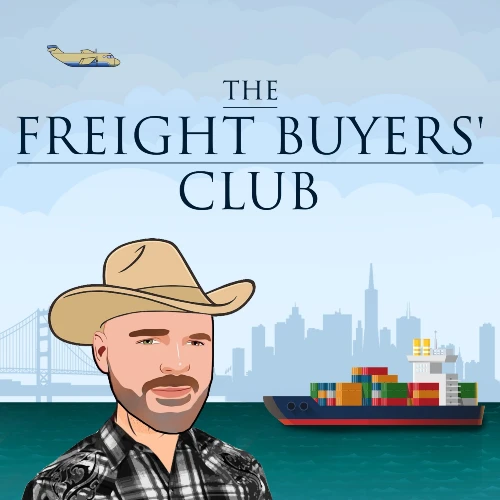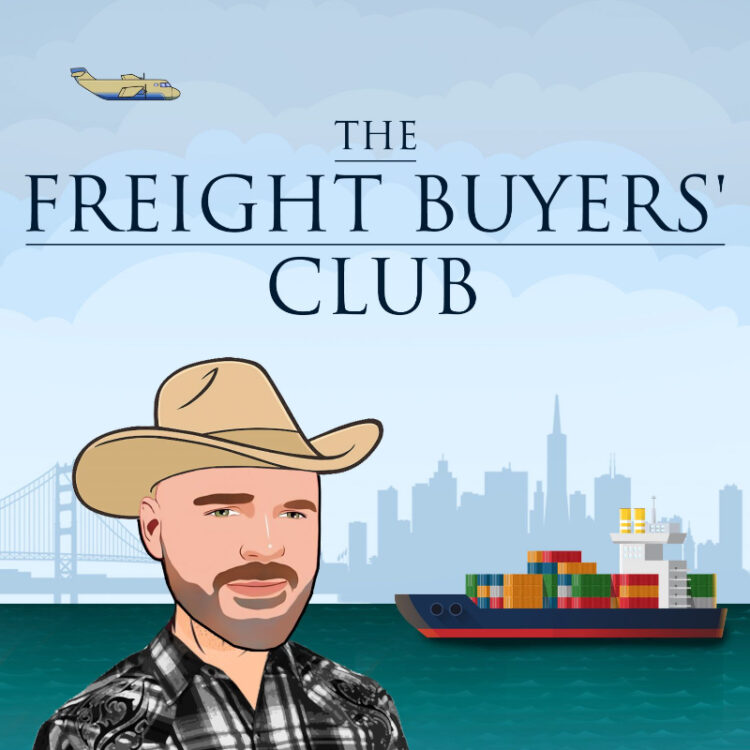Rise in protectionism will benefit forwarders and 3PLs as SMEs seek competitive support

- Small and medium-sized companies hoping to compete against larger corporations in international markets will increasingly rely on logistics partners to help them navigate rising trade barriers and cross-border transaction costs, economist and author Marc Levinson tells the latest episode of The Freight Buyers’ Club.
- Levinson also questions whether the largest container vessels are fit for purpose if future trade growth is regional rather than global.
April 10, 2024
Small and medium-sized companies could be increasingly pushed out of international trade by giant corporations if the rise of protectionist trade policies continues, according to Marc Levinson, a leading author, historian and economist who specialises in trade.
He told the latest episode of The Freight Buyers’ Club podcast that the largest businesses have the economies of scale to best navigate trade barriers and the cost of additional bureaucracy and managing new tariff regimes.
This would leave smaller companies reliant on forging partnerships with freight forwarders or excluded from international trade altogether.
“If you’re a giant company, you’ve got a whole staff of compliance people,” he said. “They can help you find the best way around the trade barriers. They can make sure that you’re in compliance with this rule or that rule that has just been imposed, and they can keep your goods flowing.
“If you’re a tiny manufacturer, you can’t do any of this stuff. You don’t have that kind of staff. You can’t afford that sort of expertise.
“And so perhaps you’ve got a freight forwarder who can do it for you, but perhaps you’re just going to be knocked out of international trade because it’s just too difficult for you to manage. And that’s the concern.
“Is international trade going to become the province of just giant corporations and all the smaller market participants are going to be forced to the edges?” [Video below]
Are container ships too big?
Elsewhere in The Freight Buyers’ Club, produced with the support of Dimerco Express Group, Levinson notes that in a future trading landscape where trade is more regionalised, and the volume of product shipped grows more slowly due to advances in technology, the largest container ships might become obsolete.
“I don’t think that these enormous vessels are really so practical, aside from the fact that they don’t really seem to have the economies of scale that were promised,” he said [Video below]. “We’ve seen that they really lack flexibility in the face of a changing world economy.
“The average distance of international trade is becoming shorter. I think the reasons for this are obvious. Some trade is regionalizing. In other cases, you’ve got a lot of great growth in new countries where the distance to trading partners is relatively short.
“So you might want a 25,000 TEU ship to carry freight between Shanghai and Rotterdam, but is it really the most efficient way to carry freight between Shanghai and Mumbai, or Singapore or Indonesia, or places where you’re now seeing substantial industrial growth?
“In those cases, I think the time required to deal with these giant ships in port will outweigh any advantages that may come from the size of the vessel.”
Trump tariffs
Levinson also said some of former US president Donald Trump’s proposed new tariffs on US imports were “a threat to trade”.
Trump has warned he will impose a universal baseline tariff of 10% on all imported goods, and tariffs of more than 60% on imports of Chinese goods if he wins the US election in November.
However, despite geopolitical flashpoints and conflict dominating the start of 2024 and protectionist economic policies gaining ground worldwide, Levinson said fears in some quarters of a return of mercantilism or a new Cold War were overblown.
“I think mercantilism is probably a bit strong, but we’re definitely moving to trade in some parts of the economy being much more driven by governments.”





